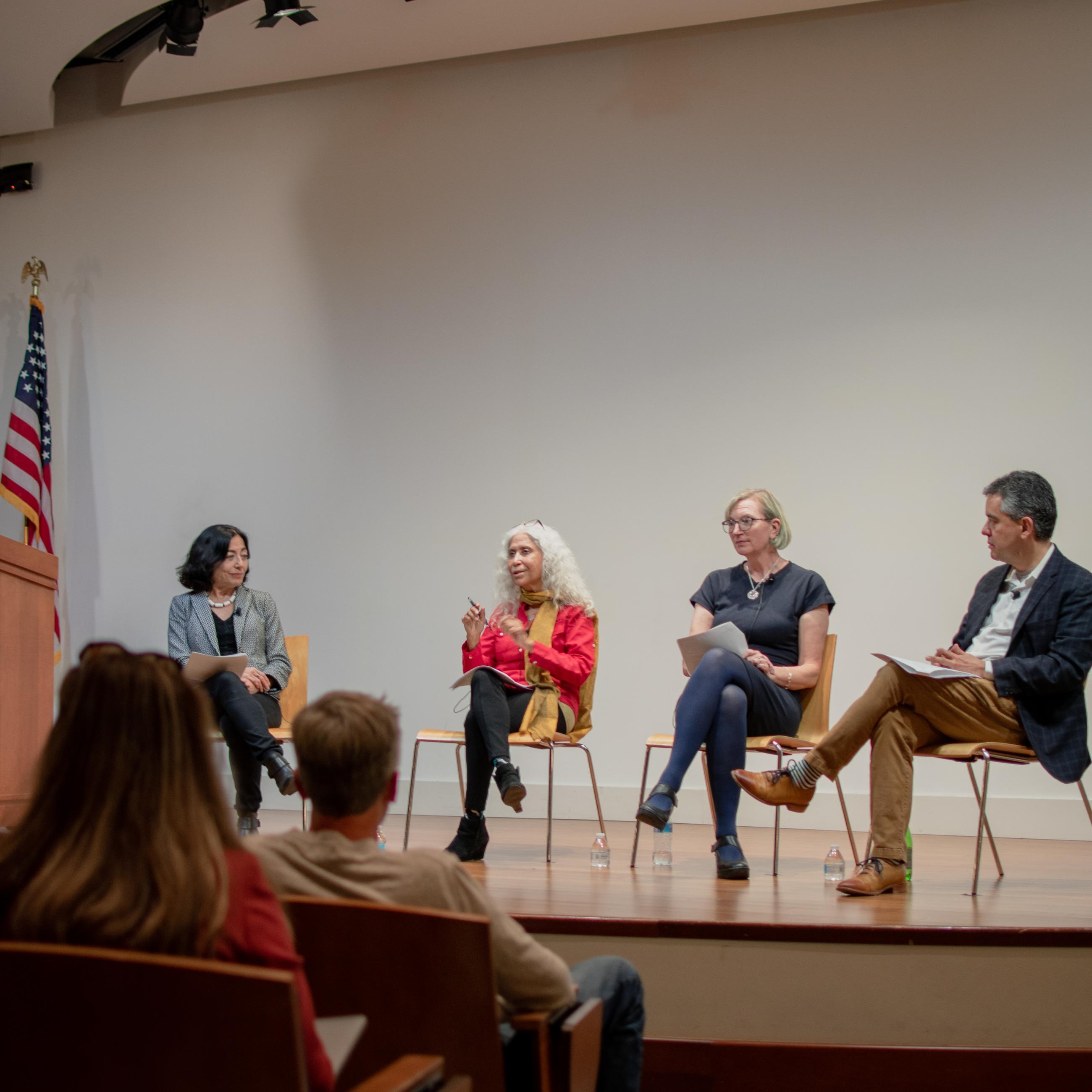
The federal government and research institutions must make science more accessible, reproducible and inclusive, NASA and UC Berkeley leaders said at an Oct. 26 event on campus hosted by the Division of Computing, Data Science, and Society at Berkeley.
It’s also urgent to diversify who is doing the scientific work, NASA and Berkeley experts said. While these aren’t new calls to action, national and global momentum makes it the right moment to take decisive action, they said.
“We have all these capabilities to do science that we didn’t have just a few years ago,” said Chelle Gentemann, science lead for the new $40 million, 5-year Transform to Open Science (TOPS) mission at NASA. “We have plans and policies around the globe that are being updated to support open science.”
“We want to do this now,” Gentemann said. NASA has named 2023 its year of open science.
Open science is the practice of making studies and the underpinning data, software and hardware designs freely accessible. This makes it easier to verify, replicate and accelerate discovery. It’s especially important now, speakers said. Trust in science has waned, even as scientific responses to challenges from combatting Covid-19 to climate change become more visible to the public.
“Open science and open source tools and platforms are the future – the future of science and indeed the future of society,” said Jennifer Chayes, UC Berkeley’s Division of Computing, Data Science, and Society associate provost and School of Information dean. “Berkeley has a long tradition of open source contributions… in research, education and impact in the world.”
Lika Guhathakurta, senior advisor for new initiatives at Goddard Space Flight Center and program scientist at NASA, and Fernando Pérez, an associate professor in Berkeley’s Statistics Department, also spoke at the event.
‘Creating a more equitable science’
Open science has historically been a grassroots movement. For example, Pérez invented one of the foundational tools for analyzing large amounts of data in a transparent and collaborative way – IPython – as a physics Ph.D. student struggling to complete his dissertation.
Berkeley and Cal Poly researchers collaborated to advance the tool, which evolved into Project Jupyter. It has been used by scientists worldwide to do groundbreaking work like capturing the first image of a black hole. Pérez said the collaborative nature and accessibility of the open science movement has been crucial to bringing young, diverse scientists into the fold.
Leaders must be intentional about keeping these values, as more institutional funding is offered and bigger companies join the movement, Pérez said.
“One of the key considerations has been, ‘How do we design a model for decision-making, governance and participation that allows one engineer or person in Argentina or Colombia to participate on a reasonably equal footing with a team of engineers from Amazon or Google or Microsoft or Adobe,’” Pérez said. “We want those teams… but we also don't want them to overwhelm this open space of voices that often have not been heard.”
Gentemann said her team is working to retain historically marginalized people and groups who have been thriving in this open science space. To do that, her team has created opportunities like monthly forums to listen to and collaborate with the community. They’re also focused on making competition for new NASA funding more equitable.
“The evidence is overwhelming. Diverse groups not only ask better questions — they get the answers faster, and they have more impact,” Gentemann said. “That's part of this evolution towards open science, this evolution towards a new platform and voices creating a more equitable science.”
Speakers mentioned additional challenges. Leaders must identify how to maintain projects and tools for the long term, so scientists can continue to build off their work. They also must figure out how to make the creation, sharing and maintenance of open-source tools part of scientists’ valued career paths, rather than solely succeeding in science through publishing research.
Berkeley is a welcoming space for those young people who are ready to invest in open science, Chayes said.
“This community is attracting people who are willing to take risks to create something new,” Chayes said. “The world is coming around, and we’re here to lend you support."
